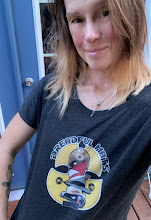About her writing process:
"What today?—more or less ‘normal’. I suppose, but still very impatient with other people’s words. This morning my volcano episode began to click into place. It is always a mystical experience when this happens with a story. I know I have to think lot about the feeling and the atmosphere of anything I want to write; and I know I have to do a lot of testing in my mind of situations. And I know that after thinking about it, it usually at one point clicks into place. But the amount of time needed for this to happen is out of my control. I have been thinking since we arrived 12 days ago—but it has not been high quality or concentrated thinking. In other words, I haven’t had my heart in it. And it is only yesterday and today, last night and this morning in bed that I began to see what I had to do with my three girls and the volcano. I expect to finish this process today, provided I can keep a bit to myself and not be distracted by others’ words and presences, and tomorrow, it should be flowing from the fingertips. I commit myself like this because I am interested to see if I am correct in my assessment of how I function, when it comes to writing. I can only contrast the present with how it was, say, from December to April, when I wrote what I feel are the best things I have done to date, when every spare moment, in the subway, doing the dishes, walking here or there, or just sitting, was enveloped in my story; my mind grew big enough and all-consuming and predominated, so that the story aggressed into other domains; whereas since May, what with M. leaving S. and organizing a household of four, and preparing to leave, it is everything else that has intruded into my mind and pushed out the story. I am impatient to go out into the beautiful sun of today and sit in the forest, to let G. and C. talk while I follow through with my story. I am tired of hearing the same old Columbia stories, told with the same adjectives and phrasing, as if it were a script. Just as I have become tired of telling the M.-S. story. I want to sweep all this old stuff out of my head for it is time to start with new and exciting things, thoughts."
Some notes:
1) Is this the volcano episode in Games of the Strong, which was not published until 12 years later?
2) My father told me the story of M. leaving S. with, I'm sure, the same phrasing and vivid bits--four heads leaning out of a window to see S. arrive home a few apartment entrances down and to see him emerge again, running out after finding an empty apartment--that they all repeated 40 years ago.


